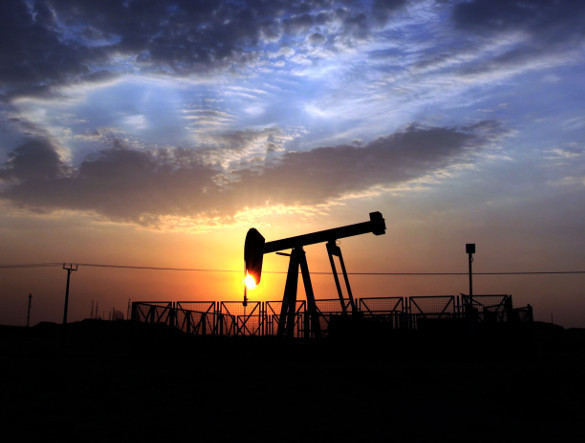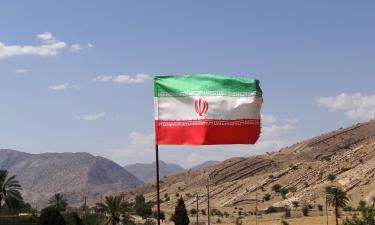Revolutionising energy resources, transport and urbanization: from Russia to Eurasian Union
By Ylli Përmeti

The main propaganda of the elites and of the "experts" of the capitalist globalization regarding the market economy and the lowering of prices of a particular product is that the more enterprises operate in a market, the more they will compete with each-other and the more they will raise the quality of their services and products and, finally, the more they will lower the prices of a particular product! But, Britain, for example, which is one of the main promoter of neoliberal globalization and of the "fair" competition, has eight gas-companies in the market, and its price, as I have showed elsewhere,1 instead of getting lower, in the last five years, has been increased more than 88%, plunging into more poverty and deaths from the cold, the poor population. And this, for a simple reason: because oil-gas-companies, as all other companies, once integrated, are being transformed into 'cartels'. 'Cartels' are being developed in every market and are being characterised by two main patterns: the one which is being created by the monopolization of the market "from above", namely, from the institutional framework (representative "democracy" and market economy), and the other "from bellow", namely, the same traders of a particular production.
Thus, the cartels of companies determine the general price, despite the fact that natural gas is not being under the control of OPEC. In fact, OPEC was being created to eliminate another cartel that was operating before the wars ("Seven Sisters"), but is has been itself converted into a cartel.2 And this, not only because the market imposes such a result, but because it has been assisted, both directly and indirectly, by the new institutional framework of neoliberal globalization: IMF, World Bank etc. But, unlike the other products of the market, the oil is the basis of the economy of a country. For the same reason, oil rich countries should have been richer than other countries that do not extract oil. But this does not happen for some countries. For example, if Albania extracts oil, and Germany not, its price in the market is almost the same! And this, because the oil of Albania is subject of the international market economy and as such it is being adjusted to the price OPEC and the corresponding elites put forward. Moreover, the oil of Albania is not being exploited to cover the objective needs of the economy of the country and to protect and develop the whole economy, but, to cover the needs of the internationalised market economy and to fill up the bags of the domestic and foreign companies (oligopolies or the megadealers). This policy bears also another negative consequence for the country: the quick exhaustion of the energy resources: because the more it is being consumed at the international level the earlier it will be exhausted.
Finally, the 'quality' of a product and of social services, is strictly related by the scientific research accompanied always with the social and individual ethics. If one misses one of these two components - any service and product will degenerate. Moreover, since every production and service is accompanied with the dynamic of competition, they lose their true meaning in the process. This is so, because science does not imply competition, but, knowledge of something. And knowledge, in turn, implies certain methodologies, and methodologies imply theoretical and practical wisdom.
The dimension of gas depletion
In some respects, cites an American researcher and ecologist, natural gas appears to be an ideal replacement fuel for oil: it burns more cleanly (though it still produces CO²). It has long been used to create nitrogen fertilizers for agriculture (through the Haber-Bosch process), for industrial process like glassmaking, for electricity generation, and for household cooking and heating. Estimates for total reserves vary from about 300 to 1,400 tcf (trillion cubic feet). With such a wide range of figures it is clear that methods of reporting and estimating are imprecise and speculative. The number 1,100 tcf is often cited; this would represent 50 years worth of reserves at current [2007] rates of global usage.3
But, unlike the above rational estimate, the chief economic editor of Financial Times, Martin Wolf, supports the estimation of the "International Energy Agency", (IEA) when he titles his "analysis" as follows: "Prepare for the golden age of gas"!4 And this, because according to IEA and Wolf, demand will rise at the international level. But, although the production of gas at the world level has risen, thanks to the shale gas of US, from 2,881,445 cubic meters in 2006 to 3,226,032 cubic meters in 2010, a 6.6 per cent increase, and estimates are optimistic for the sector, natural gas accompanies the general trend of the oil, the consequences of the policies of the transnational elite and cannot rise with a degrowth policy for the majority of the population and a growth policy for the few.
Sides' effects
The US, Canada and UK, are being confronted with a very dangerous situation: the production of gas, despite the new technological innovations (horizontal drilling) and the above numbers, creates problems both for the air we breathe and for the underearth. For example, a well requires from 2 million to 4 million of gallons of water and 15,000 to 60,000 gallons of chemicals or 100,000kg of chemicals or poisons for every well, a process that pollutes the water of the underearth. And the water, which is the basis of the chain of life, is itself at a critical situation since it is being polluted dangerously by our industries. Shale gas involves drilling into shale rocks, by injecting solutions into the rocks in order to create splits and to release the gas. In the mentioned solution are being involved toxic chemicals which are cancerogenic. These chemicals are not being removed from the underearth - instead, they are being distributed almost everywhere. The concentration of methane, for example, as a study shows,5 is at dramatic level, in some proximate waters where it is being drilled for gas. "Gasland" American documentary,6 shows clearly that from taps of households where is being drilled for gas, rivers and becks, are coming out bubbles of gas and if one causes any spark close to taps, the water get flared! The outbreak of the exploited shale gas has led in water-polluting with methane in Texas and Pennsylvania.7 As a report-study, depicts the actual situation in US on FT:
In the early years of the shale boom, production was largely restricted to remote areas that were out of sight and out of mind. But the hunger for new sources has made oil companies the unwelcome new neighbours of homes, schools and hospitals...The state is the US's sixth-biggest energy producer and home to 52,000 active oil and gas wells. The industry directly employs 31,900 people in Colorado...But the state's experience shows that the harder the "shale gale" blows, the more people will want to restrict it.8
Moreover, a report produced by the UK government's chief scientific adviser,9 warns that fracking could carry unforeseen risks in the way that thalidomide, a drug that has killed more than 80,000 children and paralysed more than 20,000, tobacco and asbestos did. All these, at the time when Obama wants to reintroduce the "Clean Air Act" of 1970s, which will have negative effects in American economy.10 Yet, a recent Nature's paper11 estimates that a third of the world's oil reserves, half its gas reserves and 80% of its coal reserves must be left untouched to avert extremely dangerous levels of global warming. Actually, the rise of temperature by 2°C is dangerous enough; and we are on course for around 5°C by the time the century ends. America and China are at the centre of this ecological bomb: because they are the main polluters of the Planet.
For subordinate countries the situation in energy resources is going from bad to worse, since they are being occupied by corporate power in a greater degree. In Albania, for example, its underground resources are state's property and local governments cannot inhibit the operations, if oil and gas-companies destroy the environment, except, of course, the organization of protests. The devastating effects into the ecosystem are being created because world corporations (mainly Anglo-American) of energy are not being equipped with an operating framework strictly scientific, which would aim at protecting the environment of the underground too: on the contrary, they are requiring from national governments, ever more carelessness for the ecological aspects. For the same reason, Britain and America, and their controlled-massmedia, in recent years, parrot strongly the profits from natural gas while ignoring sides' effects! America, for example, is in a warning situation: almost 30 per cent of its geographical surface is being drilled for natural gas and toxic residues, which are being released into the air and the underground, and are causing cancerous, neurologic, and pneumonic illnesses.
Moreover, the smashing operations with pressure upon shale rocks are causing earthquakes and earthquakes in turn, damages onto the residencies of the corresponding inhabitants. This is the reason why residents of Fier (an oil region in Albania), are protesting. But the problem with this protests is that they are not being accompanied with concrete studies; neither are those protests being helped by the massmedia (public and private), for example, by urging public debates in which possible studies could be displayed, either by researchers of the state or by advocates of corporate interests. For the same reason, the residents of this region have failed in their effort to mobilise the whole population. And they have failed even in our courts. Because it should be reemphasised that courts not only are being adjusted to the political power of a country, since from the political power depends their carrier and their fatten income and they know very well how deep are being expanded its tentacles but, they, without concrete studies, cannot stop the operations of oil-corporations on the ground. Thus every attempt will fail if the residents of the region do not strengthen it, both, with concrete studies, massive mobilization and another alternative.
On the other side, the political power of those countries where corporate power dominates, for which oil is a very important source of profit, does everything possible that not only does not develop studies on the ground, for example, by sending researchers of geology, but, impedes every study to be published. The author of this study and a lot of others, for example, is being obstructed and censured for more than five years by both, Universities and massmedia (public and private). Not to mention here the wells for water in the backyard of houses - without any scientific control. This situation creates the conditions for profit-growth for the oligarchy (professional politicians and administrators of oil-companies) and for costs-growth for the health of the labour force and the people which live close to wells and, destroys the ecosystem - the recuperation of it, in the original situation, becomes impossible.
But, unlike those countries, which have been totally subordinated to Western Powers, Russia is trying to develop new technologies on energy and it is being oriented towards its full economic and political independence, despite the fact that the price of oil and gas will fall further.12 As a report analyses on FT:
The sanctions effectively prohibit western oil companies from any involvement in Russian shale projects - in particular by inhibiting the service companies whose expertise is essential to carrying out the complex drilling operations that characterises shale production. The move has the greatest potential impact in the services sector - the companies that actually drill the wells, manufacture specialist parts, and provide the expertise to analyse the result. These functions are overwhelmingly provided by western companies - the likes of Schlumberger, Halliburton and Baker Hughes - at Russia's most technically challenging projects. Western companies account for about half of the technology used in hard-to-recover oil projects and more than 80 per cent of the technology used offshore...25 per cent of Russian oil production involved fracking and relied on western service companies. This is the most fragile part that could be the first to cause damage to the oil industry...Among the options being considered is the creation of a giant state-owned oil services company to replace western companies.13
Although the creation of the state-owned company for the development of the technology of the sector will carry on high cost, in actual conditions, with its diversification of energy resources, Russia has every possibility to develop such a technology independently of Western companies. This has been showed with its state-gas-company, "Gazprom", which, not only is one of the most successive companies in the world, but, after leaving a region, it reclaims the soil.14
And it is true that travel and leisure groups, tyremakers and clothing retailers will reap rewards from the sharp fall of oil prices,15 but this development will impede the development of green technology since a great part of investments in this sector has been financed by rise of the price of oil. It is not an accident that investments at world level during the time when the price of oil was in rise: from $60tr in 2004 to around $251tr in 2013.16
The fact that it will be damaged -if not abandoned- the development of green technology- can be showed both theoretically and empirically: for example, America of the '80s triumphed the development of green technology but with the fall of the price of oil, fell the investments too. And when profits fall - fall government subsidies and consequently investments. Moreover, the fall of the price of oil will raise the emissions of CO² in atmosphere, since the use of it becomes cheaper. This situation will surely bring mergers and acquisitions of oil companies, as happened in '90, when the "Seven Sisters" of the sector begun to purchase smaller companies, which led further to the control of oil in a greater scale: from 85% to more than 90% today.17 This, in turn, will concentrate further the economic power in few hands and will make more difficult the development of green technology, mainly in Western countries. The main claimants of the market are the Saudis, since they hold great reserves in foreign currency (more than $700tr),18 have a low debt and low cost of production, great reserves in oil and surplus.
Conclusion
The scale of the socio-economic catastrophe is unprecedented in human history, particularly the last three decades.19 It is caused mainly from the modern institutional framework, namely, representative "democracy" and its market economy, a framework which is being installed everywhere by the Transnational Elite, the dynamic of which lead, as has led, in the creation of a new institutional framework: of neoliberal globalization (IMF, WTO etc.). The former historically has been opposed by post-Marxists, but, since they follow blindly the general systemic approach of Marx, of "classes", they cannot come out of it and, they concentrate mainly upon the one side of it, namely, market economy, or as Marx calls it, capitalism (i.e. modes of production), and ignore representative "democracy", from which the market is being reproduced! Therefore, they are very partial if they adopt the approach of Marx. And they become more partial if we put above this framework the new one, of neoliberal globalization: because since the concentration of power (economic, political and social) has been institutionalized the social struggle is not a "class struggle" but a "power struggle". Classes are just the outcome of the concentration of power which becomes possible through the institutional framework. In short, either post-Marxists (e.g. Zizek) or anarchists (e.g. Chomsky), because they ignore the framework of the system, as it is, are being concerned more with the controlled facts of the capitalist elites rather than the systemic causes of them. The problem, therefore, lies firstly and mainly at the intellectual level (understanding), since they who claim the 'change' of the present situation, cannot overcome the general paleolithic approach of Marx!
On the other side, the capitalists of misery, and particularly the neocons of America, neither understand what they destroy with their decisions nor have they any chance of improving our future. The adoption of the Russian Aggression Prevention Act (RAPA) by the House of Representatives on December 4th 2014,20 for example, which not only would provide a de facto green light for the President of US and Commander in chief of NATO for war against Russia, but, allows the militarization of Eastern Europe and Baltic States with NATO troops, mainly on the borders of Russia, a resolution which will be empowered once it has been voted by the Senate and, the counter-answer of Russia almost three weeks later,21 with the review of the "military doctrine", in which is being added that Russia is being threatened by the US and NATO and it will protect in the future every allied country if it is being threaten the same, shows clearly that a true war is in the process. As an American political writer concludes:
The danger of outright war between the two nuclear powers is actually much greater than during the Cold War. We are now in a sort of Frozen War, because nothing the Russians say or do can have any effect. The neocons who manufacture U.S. policy behind the scenes have invented a totally fictional story about Russian "aggression" which the President of the United States, the mass media and now the Congress have accepted and endorsed. Russian leaders have responded with honesty, truth and common sense, remaining calm despite the invective thrown at them. It has done no good whatsoever. The positions are frozen. When reason fails, force follows. Sooner or later.22
In short, although the new war is in the process, Russia has more economic advantages than America, despite the short-term damage of its economy. One of the main advantages of Russia is its energy resources: it is almost in the '30s of America, when its geological exploration of its geographical surface reached its pick. Another advantage, which is related directly to this sector, is that Russia has developed state-owned companies which operate mainly domestically and could cooperate with the government, since Russia's political power is still dominant, while America, private, which operate mainly off shore and dictate the political power of Washington. And unlike America, Russia can develop another technoscience for the sector of energy, which would aim simultaneously several objectives: the lowering of cost of energy, through the parallel development of the future energy: solar, nuclear, wind (only in areas where birds are not being interrupted) and hydro. The development of the latter, must be truly ecological, and not as has been developed in the last century, and continuous to be developed even this century, through hydrocentrals, the dams of which, as I have showed elsewhere,23 destroy both, faunas and floras of rivers, fishes and the savings of the middle and underclass. In this sector, the World Bank has played and plays a role quite anti-scientific and anti-popular, since it is financing projects which ignore ecological aspects. Its goal is to own and monopolize the world (hydro) energy, since it knows very well that subordinate countries which built dams -and which have been integrated into NWO of N/G, will not have any possibility to pay back its loans!
The EU, on the other hand, cannot solve the problem in this sector with its directive it has adopted for the "Extractive Industries": because it aims at mainly the transparency of corporate capital,24 which, in a globalised world, becomes irrelevant. Germany, with its goal for renewable energies, and its centrifugal and centripetal power in the EU, is subject of the globalised economy and cannot settle the problem of energy, since it has tripled its energy prices since 2000, with chain reaction in the industry and, is going to adopt "shale" practices beyond the actual one (lignite etc.)! Neither can the EU improve the situation of transportation: because this sector is being dominated by cartels. The plans of China, on other hand, for the development of the "Silk Road", aim at the connection of metropolises and not the parallel connection and the development of peripheries. The concession take-over of a lot of sectors of transport by the Chinese government in various countries, does not solve the problem, too. For the same reason, the need the reconceptionalization of these sectors becomes imperative.25 Parallel with these three resources, biogas can hold an important role. But it must be based on a scientific agriculture and livestock and not on monstrous western practices.26 With the development of these energy resources, a country could move from the destructive technology and transport to a technoscience almost completely ecological, safe and healthy.
Ylli Permeti
Subscribe to Pravda.Ru Telegram channel, Facebook, RSS!





